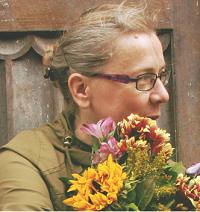Kotilava – Finnish academic journals towards immediate Open Access
DOI:
https://doi.org/10.7557/5.3974Abstract
In their joint effort, Kotilava, The Federation of Finnish Learned Societies and The National Library of Finland support Finnish scholarly journals in their transition to immediate Open Access. This project, being a part of the Open Science and Research Initiative in Finland (ATT), proceeds via two subprojects. First, the platform for editing and publishing OA journals are improved. Second, a new consortium based funding model for Finnish OA journals will be created.
Kotilava is closely related to another ATT initiative run by The National Library of Finland, TAJUA, which aims to further improve OA repository services and guidance on best practices that the National Library already provides. It also develops tools for creating metadata for research datasets. This poster focuses on the funding model of Kotilava.
Most Finnish academic journals are published in print by small scholarly societies. They have limited resources to carry out all the tasks needed in turning to immediate OA. Yet, this transformation has to happen. Researchers need to see their contribution distributed as soon and as widely as possible; also the funders require the results of the research they finance to be published in OA.
Currently, the most common way of funding OA journals are Article Processing Charges (APCs). The difficulties of this model are well known, two of the major ones being that an APC based model is not appropriate for small language areas like Finland nor for all fields of research. Thus, alternative funding models are discussed worldwide. Especially consortium based systems, such as the Open Library of Humanities’ and Knowledge Unlatched’s models, have been of interest.
So far the income of Finnish journals has consisted of sales, subventions from societies, government subsidies, and, occasionally, from subsidies by research institutions. Publishing in immediate OA decreases the income from these conventional sources of funding. Clearly, the transformation to immediate OA cannot be financed without substitutive funding.
Domestic journals provide the definitive forum to publish research on national culture, history and society. It is in the best interest of all the actors in the field from research organizations and funders to scholarly publishers to guarantee the existence of these publishing channels also in the future.
The aims of Kotilava are:
- determining the criteria the journals should meet (e.g. technical and bibliographical requirements);
- calculating the income needed to fund immediate OA;
- outlining the criteria how an article based fee is determined in different types of journals;
- negotiating with the possible funders and the journals; and
- proposing a system for collecting the funds to the consortia and for distributing it to the journals with minimum transaction costs.
Tasks 1, 2, and 3 are integrated with the part of Kotilava which aids the journals to meet the technical criteria of OA publishing. During summer 2016, a group of 12 journals has begun to examine the possibilities of creating the new funding model in practice.
Metrics





